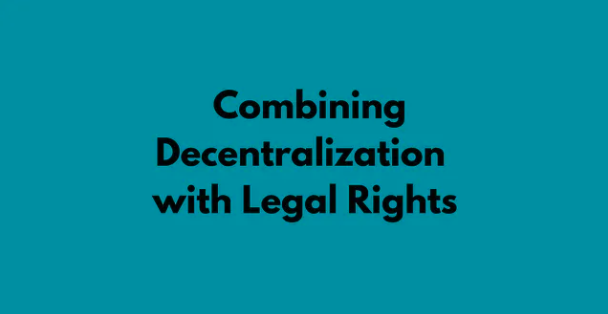Since its inception over three decades ago, the Internet has become an integral part of our daily lives and critical in the way we conduct business. Social media, e-commerce, and search engines have marked major milestones, but the next evolution is coming with the advent of Web3 — a revolution focused on decentralization. This iteration hands control of web services and data back to users, and opens financial services to all irrespective of location. Yet, one challenge remains for this transition to be successful: the incorporation of legal rights into the decentralized ecosystem.
This is where Jurat comes in, a solution that interweaves blockchain technology with the rule of law and by reading the electronic docket system, a court doesn’t have to change their tech stack to interface with Jurat’s nodes.
Unlike Web2 (the internet of today), where large corporations own and capitalize on the web’s products and services, Web3 encourages a democratic ecosystem by distributing power throughout the network. Blockchain technology is the center of this new web, offering advantages such as private security over assets, transfers of money anywhere in the world without exorbitant fees or significant time delays, and immutable transactions, meaning the inability for outsiders to manipulate or falsify data stored on the blockchain..
A perfect example of this is decentralized finance (DeFi), which disrupts conventional financial systems, enabling direct peer-to-peer interactions without intermediaries. This universal access to financial services grants access to global liquidity which brings users together no matter where they are in the world.
Moreover, Web3 also facilitates new ways to govern and form organizations. Decentralized Autonomous Organizations (DAOs), replace traditional hierarchical systems with flat structures where members collectively make decisions. Their voting power is based on their stake in the organization, not their title.
Yet, while examples of DeFi and DAOs are great examples of new opportunities in Web3, their development is throttled by the near constant hacks, scams, and loss of private keys. The immutability of blockchain makes it very difficult (if not impossible) to reverse transactions or seek remedy for fraud or contract breaches. In our global economy where millions of transactions occur daily, the inability to enforce legal contracts isn’t going to fly. We need to integrate legal mechanisms within the Web3 framework.
Jurat has spent the past several years developing technology to provide this integration. Providing on-chain legal rights for everyone in Web3 while maintaining core principles of democracy and decentralization is possible.
Thinking about it as a bridge, Jurat connects Web3 with the legal systems we use in everyday life without even thinking about it. This advancement enhances the value proposition of blockchain products. For example, with NFTs, the introduction of Jurat technology allows digital art to be licensed, royalties enforced, and artwork recovered in case of loss or theft.
As a court-connected layer one blockchain, Jurat ($JTC) operates much like a consumer protection version of Bitcoin, providing transaction reversibility under the auspices of a court. This means Jurat is not just another digital ledger, but it is mined and operated by attorneys utilizing Bitcoin’s proof of work model and node properties. When you transact in JTC, you are given the possibility to recover your funds in the event of fraud or a mistake, much like a traditional credit card.
Jurat settles the objections of Web3 brought by regulators, offering them the ability to bring enforcement actions directly against a decentralized protocol or a smart contract. For example, in February a U.S. federal court ordered a freeze on JuratBTC blockchain accounts linked to sanctioned entities, including North Korean hackers, Hydra Market, and others to remain in compliance with US OFAC requirements. With Jurat’s court connectivity, the nodes were automatically able to read and execute this order directly on-chain.
This same feature can serve as an enforcement layer for smart contracts, DAOs, and Web3 applications. By providing actionable transactions through court rulings, Jurat ensures that smart contracts can be fully autonomous while preserving the parties’ rights to judicial remedy in case of a breach.
Overall, the functionality of Jurat enhances the value proposition of Web3 and supports the development of the future of the internet.. With everything in our daily lives going digital, it’s necessary that our legal rights become digital too. This presents a future where blockchain technology is not only efficient and innovative but can provide security and the peace of mind that users expect.



